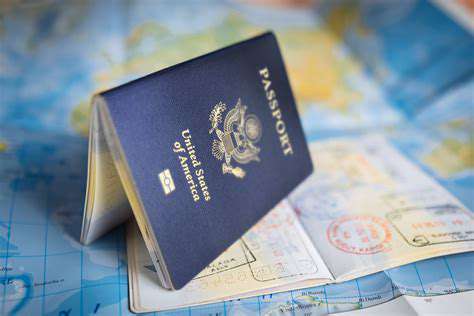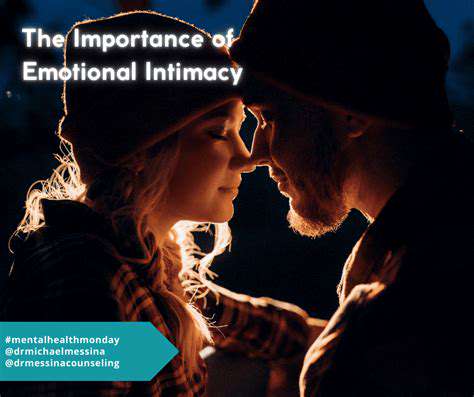Exploring Ancient Civilizations: A Cultural Trip Guide
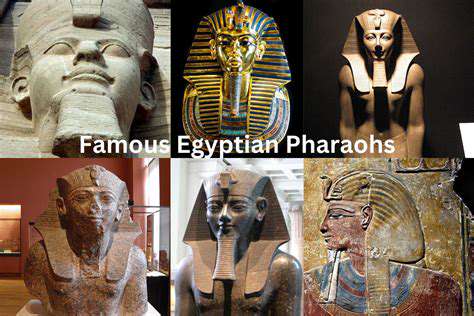
Unveiling the Mysteries of the Past
When we examine ancient civilizations, we're peering through a foggy window into humanity's earliest chapters. These long-gone societies left behind more than just ruins - they crafted complex social structures, developed intricate spiritual beliefs, and engineered solutions to problems we still face today. Their surviving artifacts tell stories that modern archaeologists painstakingly piece together, revealing how our ancestors lived, loved, and struggled.
What makes these ancient cultures particularly fascinating isn't just their achievements, but how they mirror our own modern challenges and triumphs. Their solutions to food production, urban planning, and social organization often demonstrate remarkable ingenuity that continues to surprise researchers today.
The Architectural Marvels of Antiquity
Consider the Egyptian pyramids - these aren't just piles of stone, but precise mathematical constructs aligned with celestial bodies. Modern engineers still debate exactly how workers moved multi-ton blocks without modern machinery. Similarly, Greek temples weren't just beautiful; their columns were carefully tapered to counteract optical illusions, showing an advanced understanding of human perception centuries before psychology existed as a science.
Cultural and Religious Beliefs
Ancient spiritual practices reveal how different cultures explained life's mysteries. Egyptian burial rituals, for instance, weren't merely about preserving bodies - they reflected a complex cosmology where the physical and spiritual worlds intertwined. The Mayan calendar system, often misunderstood today, demonstrated sophisticated astronomical knowledge that guided agricultural cycles and religious ceremonies.
These belief systems weren't primitive superstitions, but comprehensive worldviews that shaped everything from art to law to daily routines.
Economic Systems and Trade Networks
The Silk Road wasn't just a trade route - it was an ancient internet, transmitting goods, ideas, and technologies across continents. Phoenician merchants didn't simply sell purple dye; they established trade networks that connected disparate cultures. The Roman denarius wasn't merely currency; it was an early form of economic globalization that stabilized markets across the Mediterranean world.
These economic systems show how ancient peoples solved problems of resource distribution and value exchange in ways that still influence modern economics.
Social Structures and Hierarchies
Ancient social systems reveal fascinating insights about human organization. The caste system in India, the patrician-plebeian divide in Rome, or the elaborate bureaucracy of China's Han dynasty - each developed unique solutions to managing complex societies. Women's roles varied dramatically; while Athenian women were largely confined to domestic spheres, Spartan women enjoyed unusual freedoms, and Egyptian women could own property and initiate divorce.
Scientific and Technological Advancements
Ancient innovations often get overlooked in our focus on modern technology. The Antikythera mechanism, an ancient Greek computer, could predict astronomical positions decades in advance. Roman concrete has proven more durable than modern versions. Chinese alchemists accidentally discovered gunpowder while searching for immortality elixirs - showing how practical applications often emerge from theoretical pursuits.
These breakthroughs demonstrate that scientific curiosity and technological innovation aren't modern phenomena, but fundamental aspects of human nature across all eras.
Tracing the Roots of Mesopotamia: Cradle of Civilization
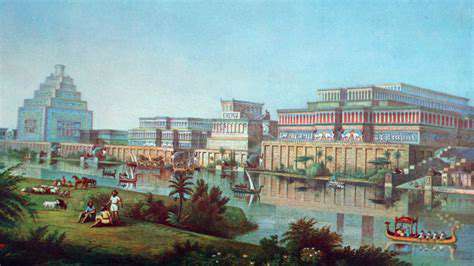
Early Settlement and Agricultural Practices
The story of early human settlements in Mesopotamia reads like a primer on civilization's birth. What began as simple farming communities along the Tigris and Euphrates rivers transformed human existence forever. These early farmers didn't just plant crops - they developed irrigation systems that turned arid land into fertile fields, invented the plow to increase yields, and domesticated animals that became crucial to agricultural development.
The Rise of City-States
As villages grew into urban centers like Ur and Uruk, they faced challenges we'd recognize today: how to govern growing populations, manage resources, and defend against rivals. The solution was the city-state - independent political units that competed yet cooperated. This tension between competition and cooperation drove innovation in everything from military tactics to trade agreements, much like modern nations today.
The Invention of Writing
Cuneiform wasn't just an early writing system - it revolutionized how humans store and transmit knowledge. What began as simple accounting marks evolved into literature, law codes, and personal correspondence. This transformation from oral to written culture changed human cognition itself, allowing for complex legal systems, detailed historical records, and the accumulation of knowledge across generations.
Development of Laws and Governance
Hammurabi's Code wasn't merely a list of punishments - it represented a philosophical breakthrough in justice. The concept that laws should be written, public, and apply to all citizens (with some exceptions) was revolutionary. This early legal system established principles that still underpin modern jurisprudence, including the idea that punishment should fit the crime and that rulers are subject to law.
Religious Beliefs and Practices
Mesopotamian religion wasn't just about worship - it was the framework for understanding the world. Their ziggurats weren't simply temples but cosmic mountains connecting heaven and earth. The Epic of Gilgamesh isn't just an ancient story but humanity's first recorded exploration of mortality, friendship, and the search for meaning - themes that still resonate today.
Technological Advancements
The wheel's invention seems simple today, but consider its impact: it revolutionized transport, pottery production, and eventually machinery. Mesopotamian irrigation systems didn't just water crops - they allowed surplus production that supported specialists (artisans, priests, administrators) who drove cultural development. These weren't just tools but foundations for civilization itself.
Cultural Exchange and Influence
Mesopotamia's location made it a cultural crossroads where ideas from India, Egypt, and Anatolia mingled. Their astronomical observations influenced Greek science; their mathematical system (based on 60) still affects how we measure time and angles. This cultural diffusion shows how innovation often comes from the intersection of different traditions - a lesson relevant in our globalized world.
Uncovering the Secrets of the Inca Empire: A Lost Andean Civilization
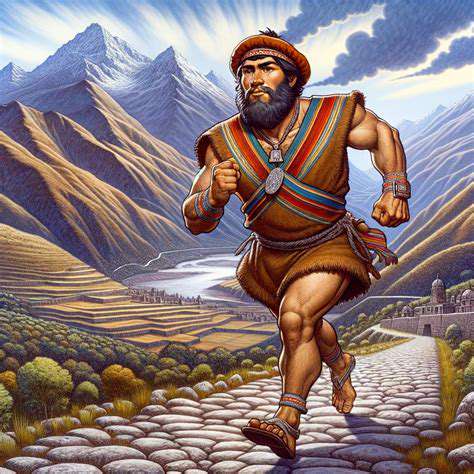
The Inca Empire's Rise to Power
The Inca story reads like a political thriller - a small kingdom that, through shrewd alliances, military innovation, and administrative genius, built the largest pre-Columbian empire. Their secret wasn't just conquest but integration - they absorbed conquered peoples by adopting their gods into the Inca pantheon and relocating loyal subjects to new areas. Their road network wasn't just infrastructure but a nervous system connecting the empire's far-flung parts.
Inca Agricultural Innovations
Inca farmers didn't just grow crops - they engineered entire landscapes. Their terraces transformed steep mountainsides into productive fields, while their freeze-dried potatoes (chuño) created the world's first instant food. These weren't just farming techniques but sophisticated responses to environmental challenges that allowed civilization to flourish where it seemingly shouldn't have.
Inca Construction and Engineering
The precision of Inca stonework still baffles engineers today. Without mortar, their walls fit so tightly that not even a knife blade can slip between stones. Machu Picchu isn't just a beautiful ruin but a masterpiece of urban planning, with drainage systems that still function and buildings aligned with astronomical events.
Inca Social Structure and Organization
The Inca developed a unique welfare state where everyone worked for both themselves and the empire. Their quipu (knotted-string recording devices) may have been more than accounting tools - some scholars believe they encoded narratives. This complex bureaucracy allowed the Inca to manage resources across diverse ecosystems without money or markets.
Inca Religion and Beliefs
Inca spirituality saw the divine in nature - mountains weren't just landforms but sacred beings. Their mummies weren't dead ancestors but active participants in political decisions. This worldview created a society deeply connected to its environment in ways modern ecologists are only beginning to appreciate.
The Fall of the Inca Empire
The Spanish conquest wasn't just a military defeat but a collision of worldviews. While steel and horses played roles, the real weapons were smallpox and the Inca's own political divisions. The empire's collapse offers sobering lessons about how internal weaknesses can make even mighty civilizations vulnerable to external shocks.
Understanding early symptoms can dramatically improve health outcomes. Many serious conditions show subtle early signs that, when recognized promptly, allow for more effective treatment. This principle applies equally to historical study - the small clues often reveal the most significant insights.
Exploring the Ancient Wonders of Greece and Rome: Pillars of Western Civilization
Ancient Greek Philosophy: Shaping Western Thought
Socrates' method of questioning assumptions, Plato's theory of ideal forms, Aristotle's systematic approach to knowledge - these weren't just academic exercises but foundations for scientific inquiry, political theory, and ethical frameworks. Their debates about democracy, justice, and the good life continue to shape political discourse today.
The Architectural Marvels of the Acropolis
The Parthenon's perfect proportions weren't accidental - Greek architects understood that mathematical harmony creates visual beauty. Their optical refinements (slight curves in apparently straight lines) corrected for how human eyes perceive buildings, showing an advanced understanding of perception centuries before neuroscience.
Roman Engineering and Infrastructure
Roman concrete's durability puts modern versions to shame - their recipe included volcanic ash that actually strengthens over time. Their roads weren't just transportation routes but tools of empire, allowing rapid movement of troops and information across vast distances.
Greek Democracy: A Foundation for Modern Governance
Athenian democracy was messy, exclusive by modern standards, and often unstable - yet it established principles like citizen participation and rule of law that remain democratic ideals. Their experiments with ostracism (exiling unpopular leaders) and sortition (selecting officials by lot) offer intriguing alternatives to modern electoral systems.
Roman Law and Legal Systems
The concept that legal principles should be written and accessible to all citizens was revolutionary. Roman jurists developed sophisticated contract law, property rights, and legal procedures that still influence civil law systems worldwide. Their distinction between public and private law remains fundamental to modern legal theory.
The Cultural Impact of Greek and Roman Art and Literature
From Homer's exploration of heroism to Virgil's national epic, these works established literary genres and themes that writers still draw upon. Greek drama's exploration of human psychology and moral dilemmas created templates for storytelling that Hollywood still follows today.
The Enduring Legacy of Greco-Roman Civilization
The Renaissance wasn't called a rebirth for nothing - it rediscovered these classical roots. From scientific method to constitutional government, from rhetorical techniques to architectural styles, Greco-Roman influences permeate Western culture in ways we often don't consciously recognize but fundamentally shape how we think and live.


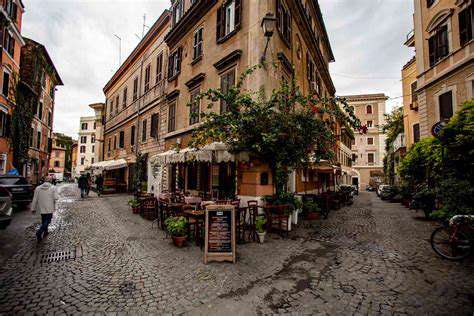


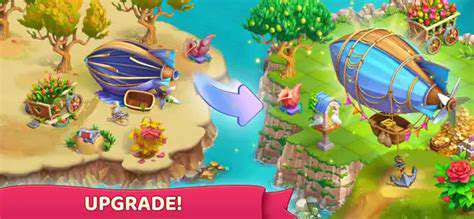
![Learning to Cook Thai Food in Thailand [Cooking Class Guide]](/static/images/27/2025-05/ChoosingtheRightCookingClassforYourNeeds.jpg)
